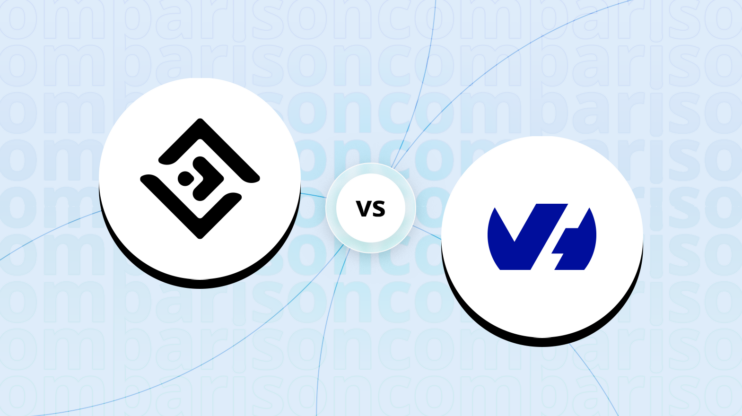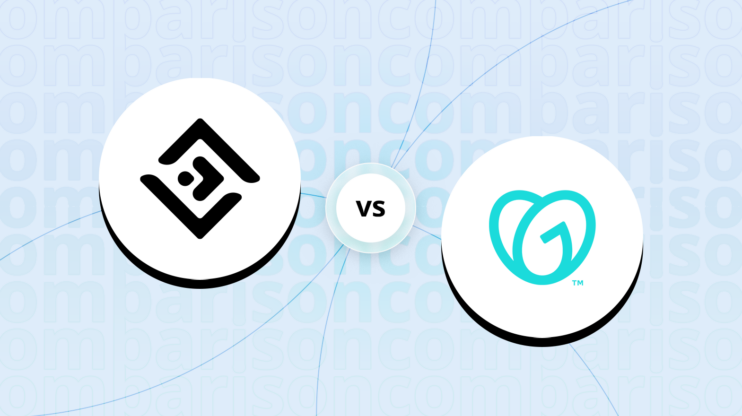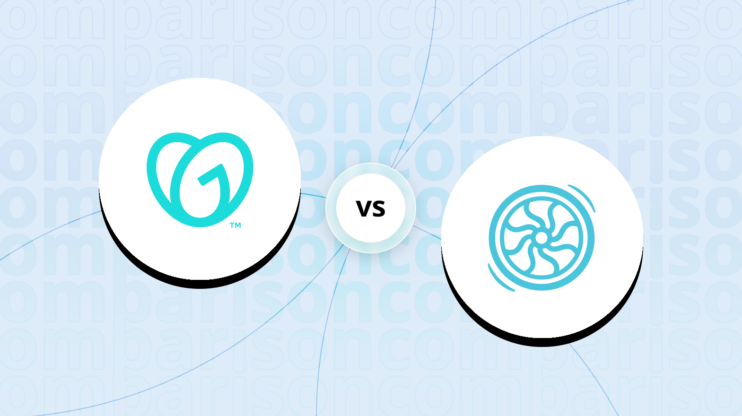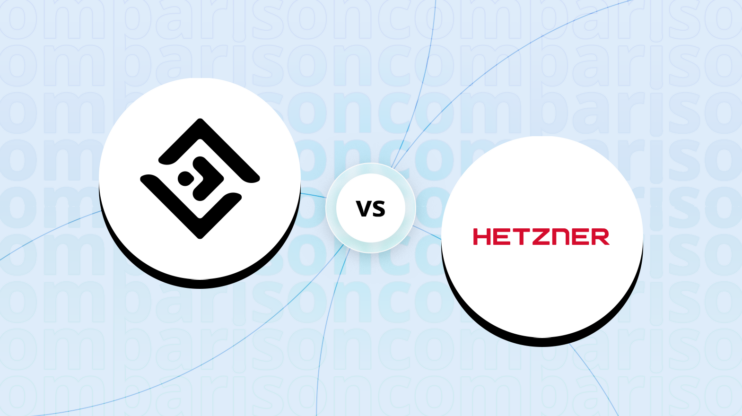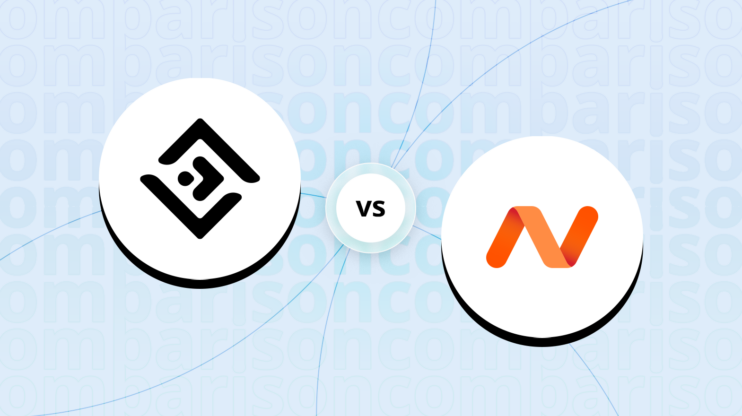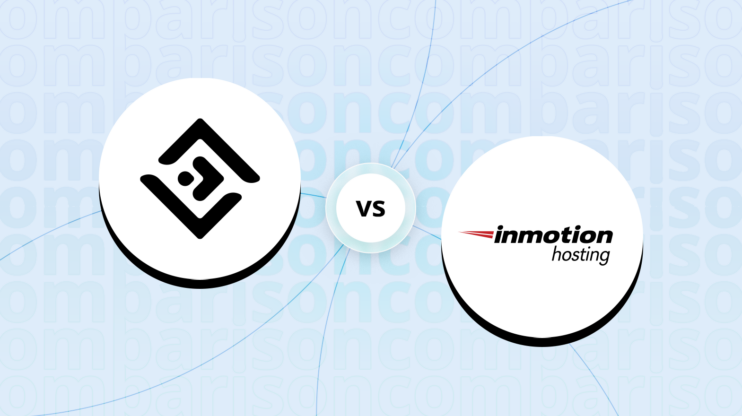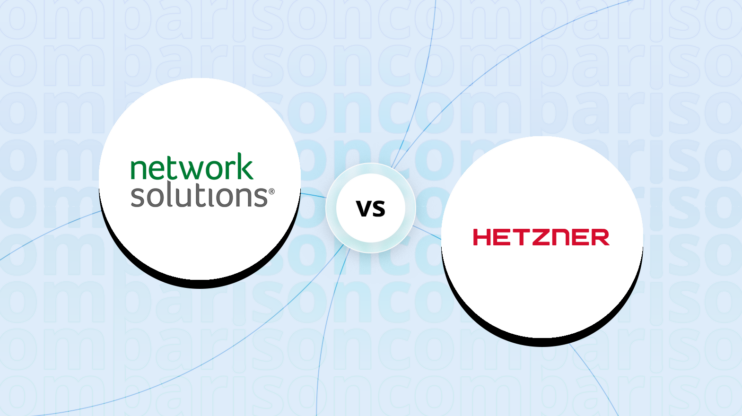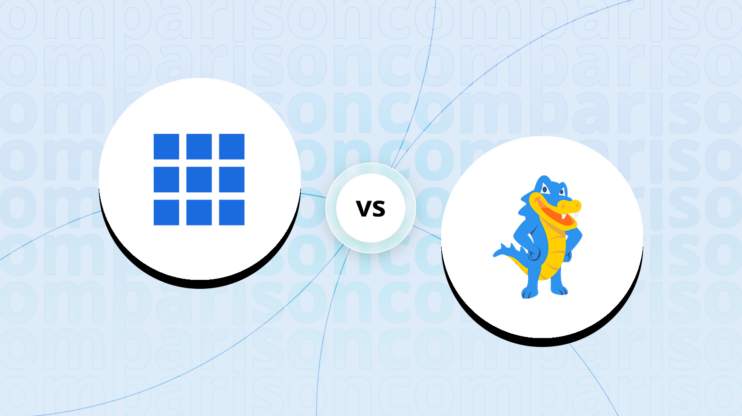Final verdict
Looking over GoDaddy vs. OVHcloud, each presents unique strengths tailored to different user needs, making the choice heavily dependent on specific requirements and preferences.
GoDaddy (Overall grade: 7.8)
provides a seamless experience with a comprehensive range of hosting options geared towards ease of use and accessibility. Known for its 99.98% uptime and quick 341ms server response time, it offers robust performance, emphasizing speed and reliability. With a user-friendly cPanel, AI site builder, and free SSL certificates, GoDaddy is particularly advantageous for multimedia websites and beginners requiring straightforward setup processes. Although its customer support is widely available 24/7, users report mixed experiences regarding response times and service quality. The provisioning of automatic backups and free domain registration for the first year further sweetens the deal, making GoDaddy a suitable choice for new site owners and those prioritizing hassle-free hosting solutions.
OVHcloud (Overall grade: 8.2)
stands out with its extensive compliance certifications, advanced user management capabilities, and a broader spectrum of hosting types, including dedicated and cloud hosting. The recent uptime improvement to 99.962% and anti-DDoS protection enhance its appeal, particularly for agencies and large-scale projects requiring high traffic handling. While OVHcloud’s control panel might require an initial learning curve, it’s tailored for more advanced users needing granular control. With competitive pricing and generous features such as multi-day backups and free SSL, OVHcloud is an excellent choice for budget-conscious users and those with technical proficiency looking for flexible and scalable hosting solutions. However, the limitations in 24/7 support options and slower response times in standard plans might necessitate consideration, especially for users requiring immediate assistance.
 Overall grade:7.8 |
 Overall grade:8.2 |
|
|---|---|---|
| Uptime and Availability | 8.6 | 8.2 |
| Hosting Performance | 8.1 | 7.5 |
| Hosting Security | 8.6 | 9.3 |
| Price | 7.7 | 8.7 |
| Hosting Features | 7.1 | 6.6 |
| Ease Of Setup | 8.7 | 8.7 |
| User Management | 5.0 | 8.9 |
| Customer Support | 8.2 | 7.6 |
| User feedback | 3.9/5 | 3.3/5 |
Hosting types offered
Both platforms provide a variety of hosting types, each designed to meet the different needs of users.
 |
 |
|
|---|---|---|
| Shared hosting | ||
| Cloud hosting | ||
| WordPress hosting | ||
| Ecommerce hosting | ||
| VPS hosting | ||
| Dedicated hosting |
Although both offer a variety of hosting plans tailored to different needs, in
certain cases, one platform may prove to be more suitable.
Detailed comparison
Uptime and availability
Evaluates the average uptime statistics, uptime guarantee and overall availability of the hosting
provider
Score Components:
- Uptime percentage (30%): evaluates the uptime statistics in given period of time
- Uptime guarantee (20%): Assesses if the platform offers an uptime guarantee and
whether the actual uptime matches the promised guarantee. - General performance (25%): Evaluates how fast is the average response time and overall
it’s stability. - Responsiveness (10%): Adaptability to different devices and screen sizes.
- Availability (25%): Reflects the total downtime and number of outages.
 8.6
8.6
 8.2
8.2
🏆 Winner GoDaddy: Proven reliability with high uptime and global efficiency.
GoDaddy offers a consistent 99.9% uptime guarantee, performing beyond expectations with a 99.98% uptime rate during testing. This high level of reliability ensures that users’ websites remain accessible with minimal interruptions. GoDaddy’s server response time of 341ms is faster than the shared hosting average, offering a competitive edge in speed. Compensation for downtime is available but limited to service credits.
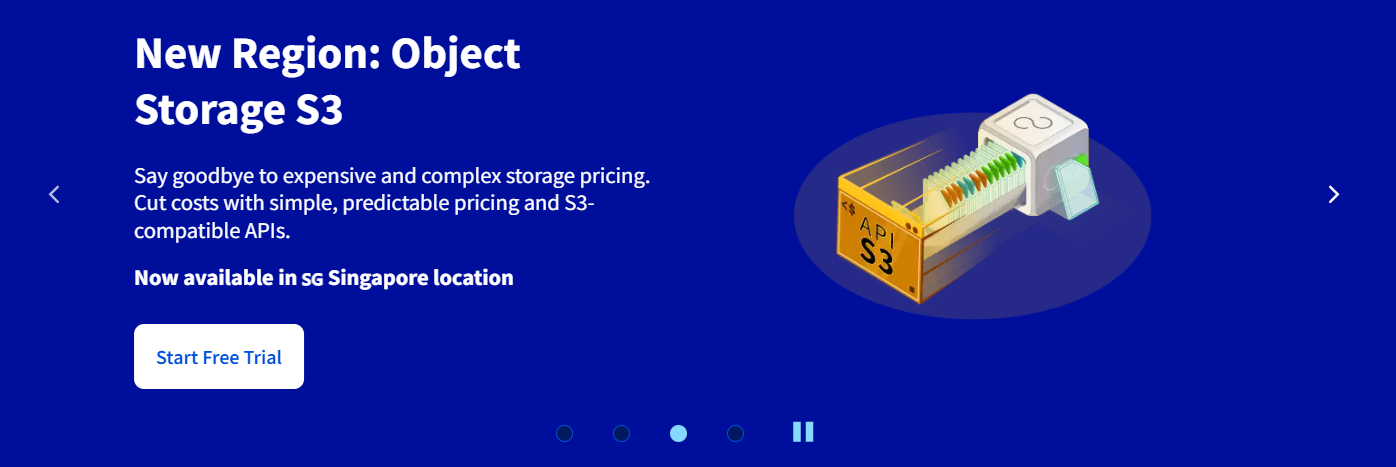
OVHcloud has shown varying uptime performance, with a recent improvement to a 99.962% uptime rate. The hosting provider emphasizes global availability and high performance, with good loading speeds across key regions. Anti-DDoS protection is included in all plans, and automatic backups offer an added layer of security. Though OVHcloud has made strides in its uptime reliability, it falls slightly short compared to GoDaddy.
Hosting performance
Score Components:
- Hosting speed (30%): This includes SSD quality, Load times, PageSpeed score ranges,
additional information on website speed, built-in plugins for performance enhancement, available caching
methods, and CPU/RAM options - CDN (20%): Considers whether CDN is available or not, whether it’s free or paid, and
the quality of the CDN service - Available data centers (30%): Evaluates the number of data centers and their locations
globally. - Scalibility (20%): Looks at whether elastic scaling is available, the process required
to scale (manual upgrade vs. automatic scaling), the presence of dedicated servers, and the costs
associated with scaling.
 8.1
8.1
 7.5
7.5
🏆 Winner: GoDaddy: Wide range of hosting options and extra features.When comparing the hosting services of GoDaddy and OVHcloud, GoDaddy stands out particularly for its speed and reliability. GoDaddy’s optimized servers offer up to 40% faster response times supported by global data centers located in North America, Europe, and Asia-Pacific. This ensures quicker page loads and higher reliability for users. OVHcloud offers a High Availability setup and a performance-oriented plan but doesn’t detail specific server speed improvements. GoDaddy provides an SSL certificate for free, while OVHcloud uses Let’s Encrypt SSL. Furthermore, GoDaddy offers unmetered bandwidth, a feature that isn’t explicitly mentioned for OVHcloud. Both providers include anti-DDoS protection, but GoDaddy boasts automatic daily backups, giving it an edge in security.
For website speed, GoDaddy shines with its NVMe SSDs known for quick data access and up to 40% faster server response times. This makes a noticeable difference in reducing load times and improving overall user experience. GoDaddy also offers CDN integration with its plans, enhancing global reach and speeding up content delivery. OVHcloud includes a basic CDN and provides detailed statistics and logs, which can help in monitoring performance. However, it lacks specifics on page load enhancements and caching methods. GoDaddy’s multiple data centers offer broader and faster coverage compared to OVHcloud.
Website Speed
For website speed, GoDaddy shines with its NVMe SSDs known for quick data access and up to 40% faster server response times. This makes a noticeable difference in reducing load times and improving overall user experience. GoDaddy also offers CDN integration with its plans, enhancing global reach and speeding up content delivery. OVHcloud includes a basic CDN and provides detailed statistics and logs, which can help in monitoring performance. However, it lacks specifics on page load enhancements and caching methods. GoDaddy’s multiple data centers offer broader and faster coverage compared to OVHcloud.
Scalability
Scalability is straightforward with GoDaddy due to its various hosting plans, from shared hosting to VPS and WooCommerce options. GoDaddy’s plans require manual upgrades based on need, with specific pricing for dedicated resources such as RAM and vCPUs, making it easier to scale as your business grows. OVHcloud also supports scalability, particularly for e-commerce and high-resource projects, but mentions a flat rate for additional boost options. Neither hosting provider specifies if automatic scaling is supported, suggesting that manual upgrades are necessary for both.
Hosting security
and regulatory requirements
Score Components:
- Technical security measures (40%): This includes encryption, firewalls, DDoS
protection, secure configurations, server monitoring, access control and availability of security addons
(e.g Sitelock security). - Operational security measures (30%): Encompasses data privacy, backups and data
redundancy. - Compliance and certifications (20%): Adherence to legal and regulatory requirements
(e.g., GDPR, HIPAA) and possession of certifications (e.g., ISO 27001, SOC 2). - Business and reliability (10%): Factors in the provider’s reputation, uptime
guarantees, and customer support.
 8.6
8.6
 9.3
9.3
🏆 Winner
OVHcloud: A comprehensive suite of compliance measures makes OVHcloud a secure and reliable hosting environment.
Both GoDaddy and OVHcloud, have notable differences in their approaches to technical and operational
security, as well as in their compliance with regulations.
Technical security measures:
GoDaddy offers a range of SSL certificates including AutoSSL, Managed SSL, and self-managed options, ensuring versatile security for various needs. OVHcloud includes a free Let’s Encrypt SSL certificate and offers paid options for higher-level certificates like the Sectigo DV and EV. Both providers include anti-DDoS protection, but GoDaddy has additional features like a Web Application Firewall (WAF) and malware scanning. Both offer automatic daily backups, but OVHcloud allows backups from multiple days. GoDaddy supports the latest versions of PHP, ensuring up-to-date security patches, while OVHcloud’s support for specific PHP versions isn’t detailed.
Operational security measures:
GoDaddy has 24/7 customer support via phone, chat, and SMS, whereas OVHcloud provides multilingual guides, a community space, and a partner program. GoDaddy has features like automatic updates for sitemaps and firewall settings, whereas OVHcloud offers task automation and detailed statistics. Data protection in GoDaddy includes GDPR compliance, data sovereignty, and additional features like CloudLinux and Cage FS. OVHcloud ensures data sovereignty with strict data transfer policies and commits to keeping data within the EU unless specific safeguards are in place.
Compliance and certifications:
GoDaddy complies with GDPR and PCI standards, providing detailed privacy policies and options for payment processing through PCI-certified products. OVHcloud far outstrips GoDaddy in compliance, meeting a vast range of certifications including GDPR, PCI DSS, ISO standards, HIPAA, and more. These extensive certifications cover various security, data protection, and operational standards, enhancing OVHcloud’s suitability for diverse regulatory requirements.
 |
 |
|
|---|---|---|
SSL certificate |
AutoSSL, Managed, Self |
Let’s Encrypt, Sectigo DV/EV |
Additional security features |
WAF, malware scanning |
Anti-DDoS, firewall |
PHP versions |
Latest versions (7.4, 8.0) |
Not specified |
GDPR compliance |
Yes |
Yes |
HIPAA compliance |
Not specified |
Yes |
PCI compliance |
Yes |
Yes |
Hosting features
Score Components:
- Domains (20%): Assesses the availability of a free domain, domain purchase options, and
pricing - Email (15%): Considers if the provider offers full email hosting, or is reselling
third-party service, and if the email is only transactional or not - Website builder (15%): Checks if website builder is available, and it’s user
friendliness and overall the level of customization allowed. - Staging environment (20%): Determines if a staging environment is available, allowing
for testing changes before going live. - FTP & SFTP accounts (10%): Evaluates if and how easily users can access FTP and
SFTP accounts - Git and SSH access (20%): Assess whether Git is integrated into the hosting service and
if SSH access is provided
 7.1
7.1
 6.6
6.6
🏆 Winner GoDaddy: A widely recognized provider offering comprehensive features and robust performance.
Both GoDaddy and OVHcloud present an array of hosting features tailored to various user needs. GoDaddy provides website builder tools with their Managed WordPress Hosting plans, enhancing user-friendliness and allowing for a higher degree of complex customization, ideal for those preferring a seamless setup process. They also include free domain registration for the first year and free SSL, making it a cost-effective choice for new site owners. GoDaddy’s differentiator is their free WordPress migration tool and PCI Compliance with certain plans, attracting those prioritizing easy transitions and security for e-commerce.
OVHcloud’s offerings emphasize infrastructure management with detailed statistics, multi-site management, and robust backup options. Its starter plan with WordPress pre-installed is incredibly affordable, but the automatic backups and unlimited monthly traffic across all plans stand out. OVHcloud also includes FTP/SFTP and SSH access on higher-tier plans, appealing to more technical users who need more control. Their pricing is comparatively lower, which can be attractive for budget-conscious customers. However, OVHcloud lacks some benefits like free domains which can be a deciding factor for many.
 |
 |
|
|---|---|---|
| Free domain | Yes, for the first year | No |
| Free SSL | Yes, for the first year | Yes |
| Email hosting | Yes | Yes |
| Website builder | Yes, with Managed WordPress plans | 1-Click CMS installations |
| Staging environment | Yes, Deluxe Performance and above | Yes, Performance Web Hosting plan |
| FTP & SFTP accounts | Yes, included | Yes |
| Git and SSH access | Yes, VPS and higher | Yes, available for Professional plan |
| Free backup | Yes, automatic daily backups | Yes, multi-day backups |
| Money back guarantee | Yes, 30-day | No |
Both providers support a range of users from beginners to experts with user-friendly website builders and WordPress staging areas. However, in terms of developer tools, both GoDaddy and OVHcloud offer robust options including SSH access, support for multiple programming languages, and Git for version control, thus appealing to developers looking for advanced capabilities.
Email services:
GoDaddy offers free email hosting with all hosting plans, including free email for the first year, making it easier for businesses to establish professional communication channels. OVHcloud, while providing email hosting with various capacities depending on the plan, does not focus on transactional email capabilities and lacks third-party integrations like Google Workspace or Outlook found in some competitors. Both cater well to basic emailing needs but GoDaddy’s upfront inclusion of email services makes it more appealing to those looking to set up professional email campaigns right from the start.
Price
Score Components:
- Plan value (40%): What each pricing tier offers.
- Transparency and clarity (30%): Clearness of pricing structures.
- Flexibility of plans (20%): Range of options to suit different budgets.
- Hidden costs (10%): Additional expenses not included in the plan.
 7.7
7.7
 8.7
8.7
🏆 Winner
OVHcloud: OVHcloud scores slightly higher overall, mainly due to the robust features included in their plans and the transparency of what’s included.
Evaluating the pricing of plans among various hosting providers can be complex due to their differing pricing and renewal strategies. Additionally, certain plans require annual commitments, which adds to the difficulty of making comparisons. The prices listed are based on monthly commitments; plans requiring annual commitments are indicated. Additionally, although some providers offer identical plans for WordPress and shared hosting, we have created separate tables for each to enhance clarity.
When comparing GoDaddy Web Hosting with OVHcloud, GoDaddy provides a diverse range of plans tailored for web hosting, WordPress hosting, VPS hosting, and WooCommerce stores. Prices vary based on features, including the number of websites, storage, and additional security measures. OVHcloud, on the other hand, offers more economical options with additional flexibility in its shared and cloud hosting plans. Unique offerings like pay-as-you-go performance boosts and various tiered SSL certificates set OVHcloud apart, making it more suitable for diverse needs at competitive pricing.
 |
 |
|---|---|
|
Managed WordPress Basic $12.99
1 website, 10 GB NVMe storage, free domain, free SSL certificate, WordPress pre-installed, AI creation tool, weekly backups, web application firewall, automated malware scans & removal. Value for price:7.0
|
N/A |
|
Managed WordPress Deluxe $13.99
1 website, 20 GB NVMe storage, free domain, free SSL certificate, WordPress pre-installed, AI creation tool, daily backups, web application firewall, automated malware scans & removal, 2x faster performance with CDN, DDoS protection, staging site. Value for price:8.0
|
N/A |
|
Managed WordPress Ultimate $15.99
1 website, 30 GB NVMe storage, free domain, free SSL certificate, WordPress pre-installed, AI creation tool, daily + on-demand backups, web application firewall, automated malware scans & removal, 2x faster performance with CDN, DDoS protection, staging site, SEO optimizer, WordPress code optimizer, smart WordPress plugin manager, WooCommerce integration, priority support. Value for price:9.0
|
N/A |
 |
 |
|---|---|
|
Web Hosting Economy $5.99
1 website, 25 GB NVMe storage, 10 databases, shared RAM and vCPU resources, free domain, free email, free SSL certificate (1 year), 30-day money-back guarantee, free WordPress migration tool. Value for price:6.0
|
Starter Web Hosting $1.04
1 website, 1 GB disk space, 2 email addresses, free domain (1 year), WordPress installed. Value for price:8.0
|
|
Web Hosting Deluxe $7.99
10 websites, 50 GB NVMe storage, 25 databases, shared RAM and vCPU resources, free domain, free email, unlimited SSL for all websites, 30-day money-back guarantee, free WordPress migration tool. Value for price:7.0
|
Personal Web Hosting $4.39
1 website, 100 GB disk space, 10 email addresses, free domain (1 year), 1-click CMS, unlimited FTP access. Value for price:8.5
|
|
Web Hosting Ultimate $12.99
25 websites, 75 GB NVMe storage, 50 databases, shared RAM and vCPU resources, free domain, free email, unlimited SSL for all websites, 30-day money-back guarantee, free WordPress migration tool. Value for price:8.0
|
Professional Web Hosting $7.69
1 website, 250 GB disk space, 100 email addresses, free domain (1 year), 1-click CMS, unlimited SSH access. Value for price:9.0
|
|
Web Hosting Maximum $17.99
50 websites, 100 GB NVMe storage, 100 databases, shared RAM and vCPU resources, free domain, free email, unlimited SSL for all websites, 30-day money-back guarantee, free WordPress migration tool. Value for price:8.5
|
Performance Web Hosting $13.19
1 website, 500 GB disk space, up to 1000 email addresses, free domain (1 year), 1-click CMS, unlimited SSH access, high-performance resources, web cloud databases 512 MB RAM, CDN basic. Value for price:9.5
|
 |
 |
|---|---|
|
1 vCPU / 2GB RAM $8.99
1 vCPU core, 2 GB RAM, 40 GB NVMe SSD storage, snapshot backups, Linux only, cPanel or Plesk available, 1 additional IP available upon request, global data centers. Value for price:7.0
|
Starter Web Hosting $1.04
1 website, 1 GB disk space, 2 email addresses, free domain (1 year), WordPress installed. Value for price:8.0
|
|
2 vCPU / 4GB RAM $17.99
2 vCPU cores, 4 GB RAM, 100 GB NVMe SSD storage, snapshot backups, Linux or Windows compatible, cPanel or Plesk available, 2 additional IPs available upon request, global data centers. Value for price:7.5
|
Personal Web Hosting $4.39
1 website, 100 GB disk space, 10 email addresses, free domain (1 year), 1-click CMS, unlimited FTP access. Value for price:8.5
|
|
4 vCPU / 8GB RAM $34.99
4 vCPU cores, 8 GB RAM, 200 GB NVMe SSD storage, snapshot backups, Linux or Windows compatible, cPanel or Plesk available, 3 additional IPs available upon request, global data centers. Value for price:8.0
|
Professional Web Hosting $7.69
1 website, 250 GB disk space, 100 email addresses, free domain (1 year), 1-click CMS, unlimited SSH access. Value for price:9.0
|
|
4 vCPU / 16GB RAM $44.99
4 vCPU cores, 16 GB RAM, 200 GB NVMe SSD storage, snapshot backups, Linux or Windows compatible, cPanel or Plesk available, 3 additional IPs available upon request, global data centers. Value for price:8.5
|
Performance Web Hosting $13.19
1 website, 500 GB disk space, up to 1000 email addresses, free domain (1 year), 1-click CMS, unlimited SSH access, high-performance resources, web cloud databases 512 MB RAM, CDN basic. Value for price:9.5
|
As a result in rare cases the prices displayed here can differ from the ones you see on their websites.
Enterprise plans
For enterprises, GoDaddy offers extensive web hosting plans with substantial storage and processing resources, along with managed WooCommerce solutions. OVHcloud excels with its Performance Web Hosting and supplementary cloud hosting options, ensuring ample disk space and email support at competitive prices. Plans from both providers cater to scalability and high demand, but OVHcloud stands out as a more affordable and flexible choice for large businesses.
Ease of setup
platform.
Score Components:
- Site migration (25%): Assesses whether the provider offers tools for site migration,
either automated or manual, and whether these services are free or require a fee. - Admin panel usability (35%): Evaluates the type of admin panel provided, such as the
standard cPanel or a custom solution, focusing on its accessibility and user-friendliness for both
technical and non-technical users. - Setup features (20%): Examines the availability and ease of use of various setup
features, including FTP accounts, file managers, email account setup, PHPMyAdmin, and easy CDN
configuration. - Help center quality (20%): Measures the quality and accessibility of the provider’s
help center resources, including articles and tutorials.
 8.7
8.7
 8.7
8.7
🏆 Winner
[hosting provider name]: I do not have enough information.
GoDaddy offers an easy-to-use control panel featuring the industry-standard cPanel. This interface is known for its accessibility and user-friendliness, making it convenient for both technical and non-technical users to manage apps, backups, and security settings. Users can effortlessly perform tasks like installing applications and configuring settings without needing specialized knowledge. On the other hand, OVHcloud provides a simplified, centralized control panel designed to configure products and services. While OVHcloud’s control panel also focuses on ease of use, its specific interface could either simplify or complicate the process for non-technical users depending on their familiarity with web hosting concepts.
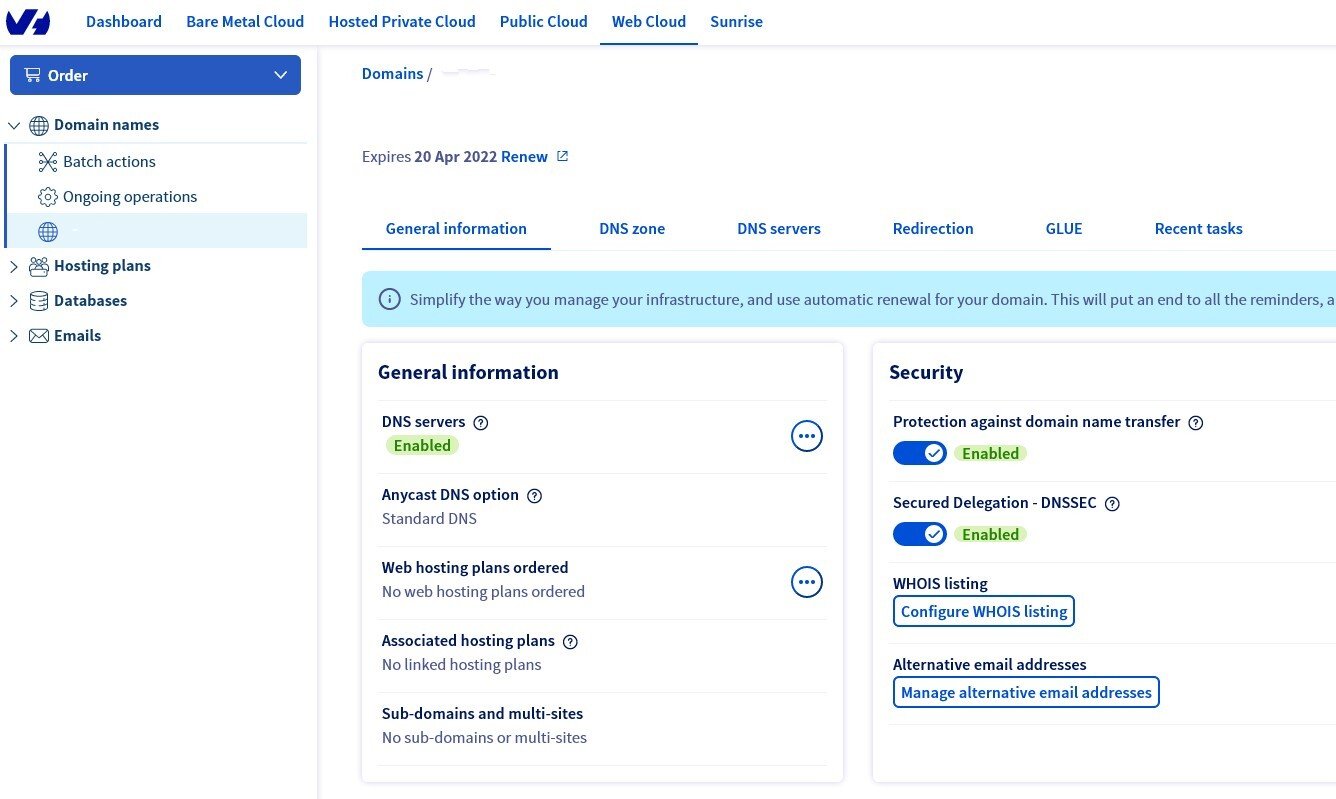
Both hosting providers streamline setup and management via their respective admin panels. GoDaddy’s cPanel is popular for its intuitive design and broad compatibility with various tools. Even novices find it manageable for daily operations. OVHcloud’s control panel, although simplified, may require some familiarization for users used to more traditional setups like cPanel. The choice between the two may come down to personal preference and one’s level of technical expertise.
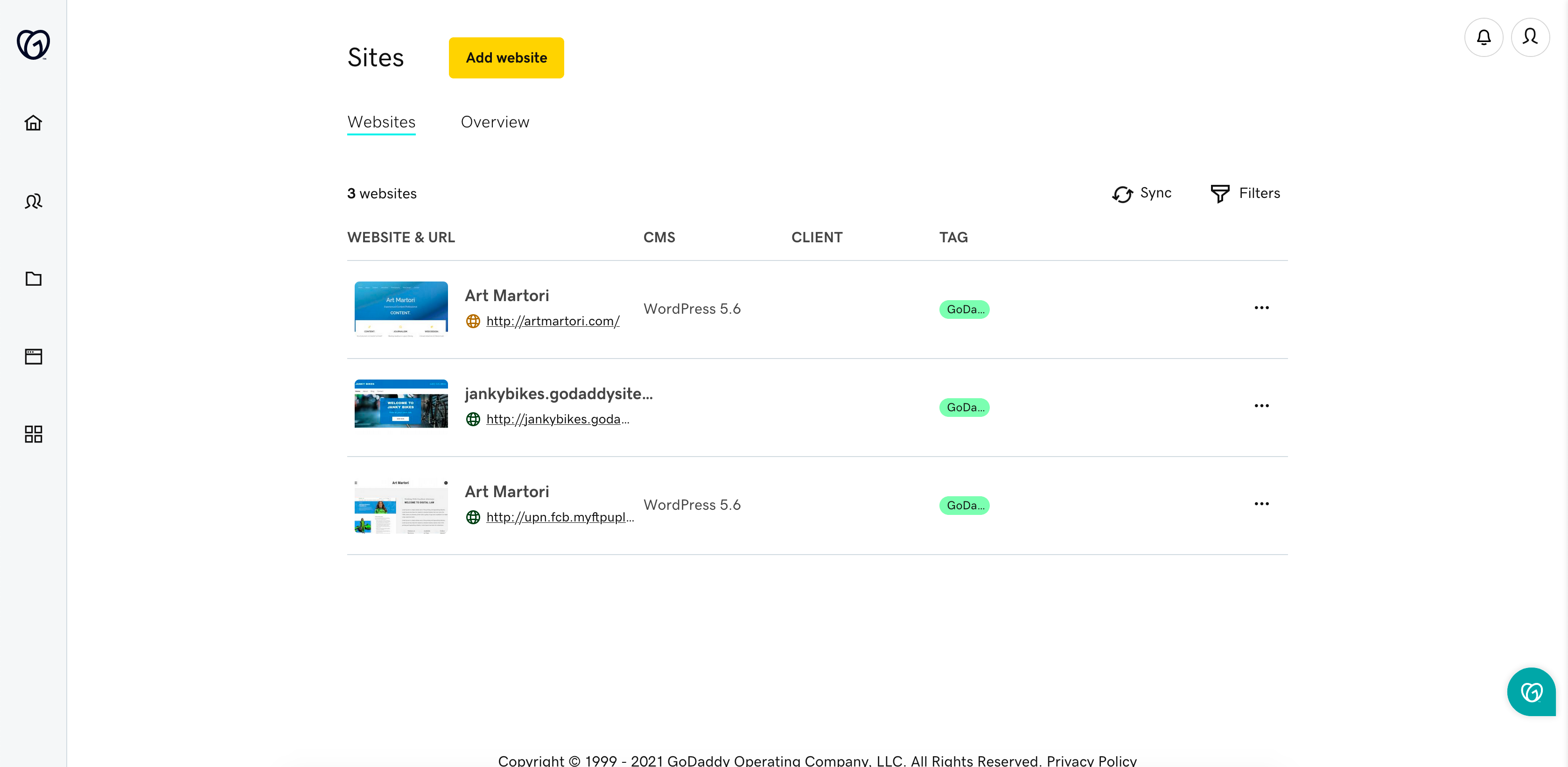
GoDaddy provides a free WordPress migration tool, making it straightforward for users to transfer their existing WordPress sites to their hosting platform. This automated tool simplifies the migration process without incurring additional costs. OVHcloud also offers various options for moving your website files, including the use of FTP Explorer, FTP Client, or SSH. Although these methods are useful, they may require a bit more technical knowledge, and it’s not explicitly stated whether there are automated tools or if these services are free.
The platforms provide extensive knowledge bases filled with guides, how-to articles, and instructional content. GoDaddy’s knowledge base is rich in resources including 24/7 customer support via multiple channels, a comprehensive FAQ section, and a wide range of help articles that cover much of the information needed for setting up and managing web hosting. OVHcloud provides multilingual guides and a community space, which adds an extra layer of support. Detailed guides are available for more technical aspects, and their Help Centre is well-organized to assist users. Both providers offer extensive support, but accessibility might vary depending on the specific needs of the user.
User management
accessibility.
Score Components:
- Role customization (40%): Flexibility in creating and defining user roles and
permissions. - Ease of management (30%): User interface and tools for managing users.
- Access control (20%): Effectiveness of access control measures for different user
levels. - Scalability (10%): Ability to manage a growing number of users efficiently.
 5.0
5.0
 8.9
8.9
🏆 Winner OVHcloud: A highly comprehensive and flexible user management system.
Comparing the user management features of GoDaddy and OVHcloud highlights significant contrasts. OVHcloud offers full access and rights management for the infrastructure, providing a detailed approach towards defining roles and permissions. This includes an unlimited number of users, role customization, and the grouping of multiple roles for specific access needs. On the other hand, GoDaddy’s user management lacks detailed publicly available information regarding user roles, permissions, and flexibility. Therefore, the specifics on how GoDaddy handles user management are less clear, making OVHcloud appear more transparent and adaptable in this regard.
OVHcloud provides a robust set of tools and a user-friendly interface through their Control Panel for managing users. This includes the ability to generate configuration files directly for various tools like the OpenStack CLI or Rclone. The platform offers a seamless experience for creating and adjusting user roles as needed. In contrast, GoDaddy’s user interface and tools for user management are not as explicitly documented, leaving its effectiveness and user experience somewhat ambiguous.
Effectiveness of access control measures is another area where OVHcloud shines. The capability to handle multiple user accesses, define precise roles, and group several roles together ensures that access is both efficient and secure. OVHcloud’s platform is well-suited for managing a growing number of users without compromising security, thanks to its unlimited user creation and easy role adjustments. Conversely, due to the lack of detailed information on GoDaddy’s user management system, it’s challenging to assess its effectiveness in a similar context.
OVHcloud user roles table:
| Role | Description | Access Highlights |
|---|---|---|
| Administrator | Manages the entire infrastructure and resources. | Full access to all cloud resources and configurations. |
| Network Operator | Manages network-related tasks and configurations. | Access to network settings, changes in network infrastructure. |
| Infrastructure Supervisor | Oversees overall infrastructure health. | Monitoring of all infrastructure components and performance. |
| ObjectStore Operator | Handles object storage operations. | Access to manage object storage, like creating and deleting objects. |
| Image Operator | Creates and manages private images. | Permissions to create, modify, and manage virtual server images. |
| Computer Operator | Manages computing resources. | Can create, monitor, and adjust computing instances. |
Customer support
hosting provider.
Score Components:
- Support communication channels (30%): Measures the variety of customer support types
provided (live chat, chatbot, email, phone, etc.) - Availability (20%): Assesses the availability hours for each channel, including 24/7
support options. - Technical support quality (30%): Assesses whether the provider offers comprehensive
technical support, including hardware upgrades (e.g., HDD to SSD), software installations, and web
server configuration changes. - Enterprise support (20%): Checks if there are dedicated or priority support services
for enterprise-level customers.
 8.2
8.2
 7.6
7.6
🏆 Winner GoDaddy: Offers 24/7 customer support with multiple contact methods and comprehensive resources.
 |
 |
|
|---|---|---|
Phone support |
||
Live chat support |
||
Chatbot |
||
Email/ticket support |
||
Enterprise support (dedicated agent, priority support) |
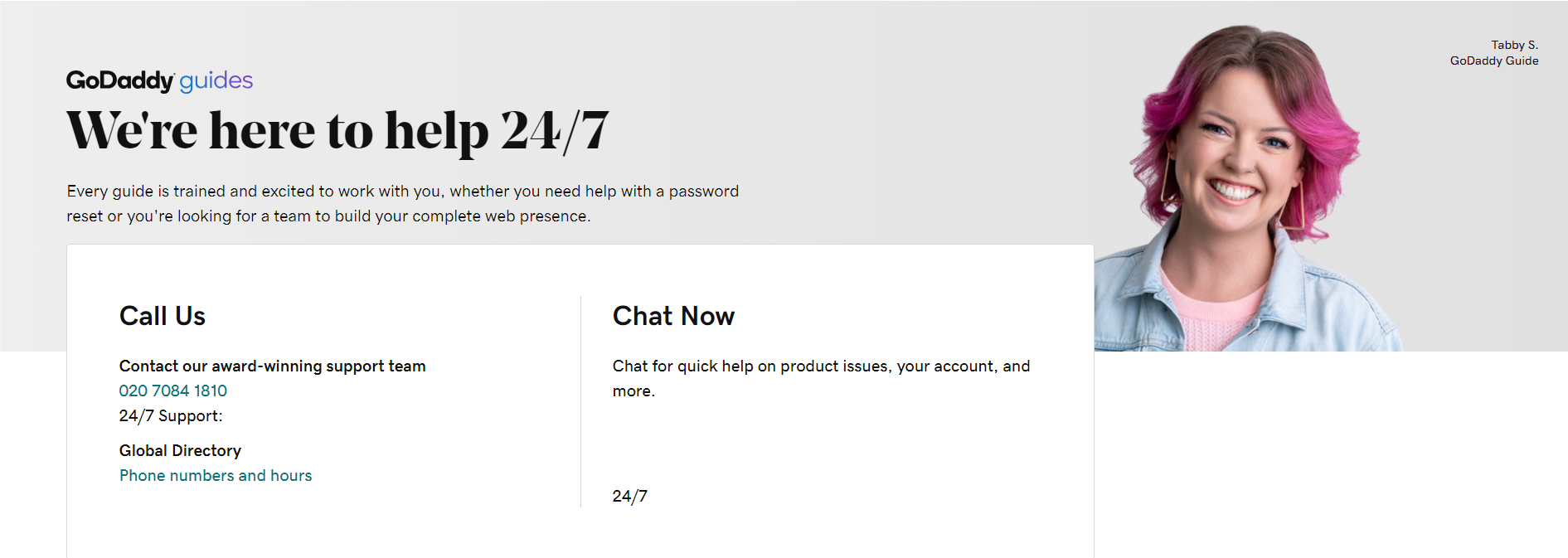
GoDaddy stands out for its 24/7 support available through phone, email, and live chat (albeit only on its U.S. subdomain), complemented by a vast knowledgebase featuring articles, guides, and videos. Free perks like automatic daily backups and a WordPress migration tool, along with a 30-day money-back guarantee, enhance its support offerings.
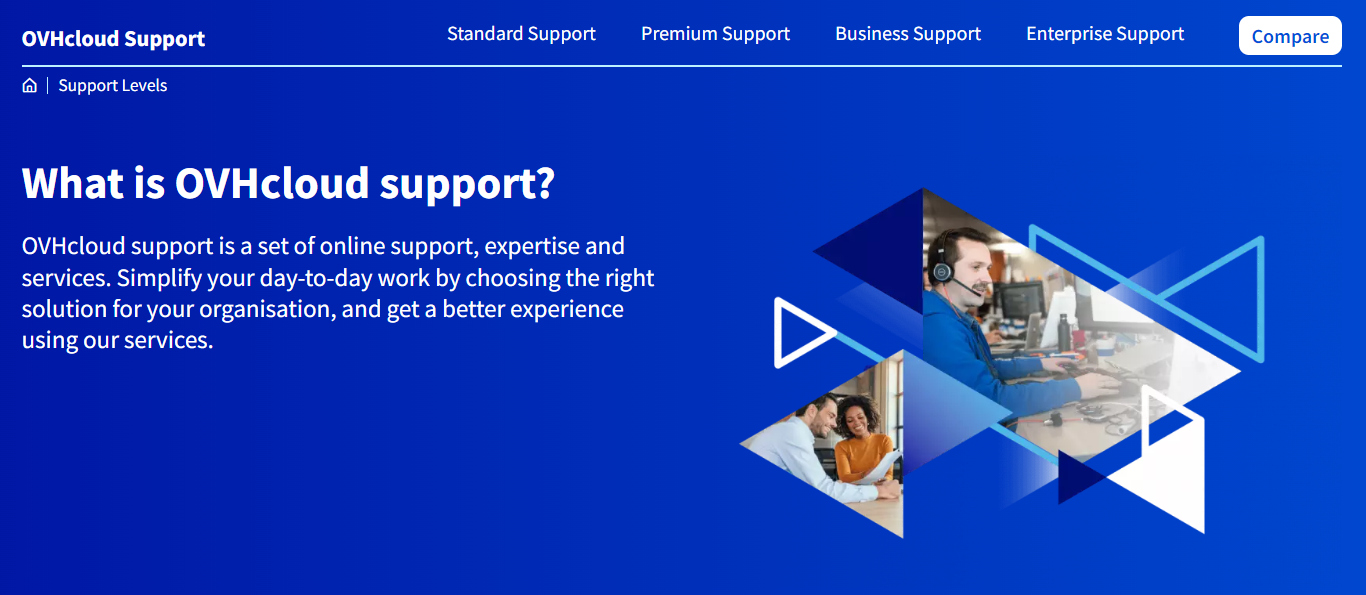
OVHcloud provides tiered support options, with its Business and Enterprise plans delivering 24/7 technical assistance but at a higher cost. Standard support includes limited hours and longer first-response times. The knowledgebase and community forum are helpful, yet lacking immediate answers in some cases. Overall, GoDaddy’s accessible and comprehensive support features make it a more compelling choice.
User feedback
GoDaddy generally receives praise for its ease of use, affordability, comprehensive service offerings, and user-friendly interface, making it a popular choice for domain registration and basic web hosting. Many users appreciate the ability to purchase domains, web hosting, email services, and other digital products all in one place, along with frequent discounts for new customers. However, customer service experiences are inconsistent; while some users find it helpful and responsive, others report long wait times and unknowledgeable support staff. Additionally, recurring issues include high renewal costs, persistent upselling, and occasional technical difficulties.
User feedback for this hosting provider reveals a stark contrast in experiences. On one hand, users appreciate the competitive pricing, diverse range of services, multiple datacenter locations, and solid server performance when issues do not arise, reflecting a favorable cost-benefit ratio. On the other hand, many users criticize the provider’s customer service, highlighting slow response times, inadequate technical support, and unresolved billing discrepancies, with some experiencing significant delays and lack of assistance in critical situations. Overall, while the hosting services can be robust and reliable, the customer support and service delivery times need considerable improvement.
FAQ
Which hosting service offers better security features?
GoDaddy offers a range of SSL certificates including AutoSSL, Managed SSL, and self-managed options, as well as anti-DDoS protection, a Web Application Firewall (WAF), and malware scanning. OVHcloud includes a free Let’s Encrypt SSL certificate, paid options like the Sectigo DV/EV, and also provides anti-DDoS protection and automatic backups from multiple days. While both providers offer robust security features, OVHcloud’s extensive compliance certifications like HIPAA and ISO standards make it more suitable for users with stringent regulatory requirements.
Are both platforms suitable for beginners?
Both GoDaddy and OVHcloud offer features that cater to beginners, but GoDaddy is particularly advantageous due to its user-friendly cPanel, AI site builder, and free domain registration for the first year. GoDaddy’s seamless setup processes and comprehensive customer support make it a great choice for those new to web hosting. OVHcloud, with its broad range of services and initial learning curve, is more tailored for users with some technical proficiency.
Which platform offers better customer support?
GoDaddy offers 24/7 support through phone, email, and live chat, complemented by a vast knowledgebase featuring articles, guides, and videos. OVHcloud provides tiered support options, with 24/7 technical assistance available at a higher cost, and a helpful community forum and knowledgebase. Overall, GoDaddy’s accessible and comprehensive support features make it a more compelling choice for customer support.
What are the differences in the control panels offered by each hosting service?
GoDaddy uses the industry-standard cPanel, known for its accessibility and user-friendliness, making it convenient for both technical and non-technical users. OVHcloud provides a simplified, centralized control panel designed to configure products and services but may require some familiarization for users accustomed to traditional setups like cPanel. The choice between the two may come down to personal preference and one’s level of technical expertise.
What are the major differences in pricing and value between GoDaddy and OVHcloud?
OVHcloud offers a more affordable entry point with their Starter Web Hosting at $1.04/month, while GoDaddy’s lowest plan is $5.99/month. OVHcloud generally provides more storage and email addresses across their plans, whereas GoDaddy’s plans come with additional features like free domain, SSL, and email services. Both providers offer a variety of plans tailored to different user needs, but GoDaddy’s comprehensive packages with free services might appeal more to users needing all-inclusive solutions.
The making of this blog
We followed a clear, step-by-step process to write and research this article.









